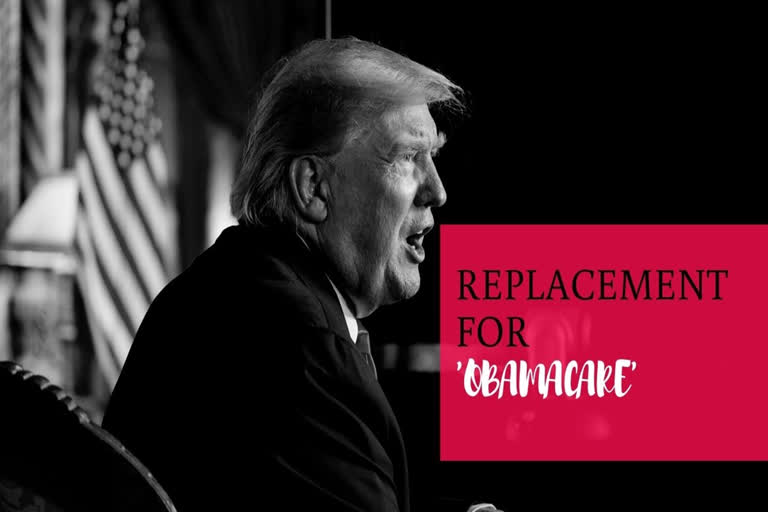Washington:As a candidate for the White House, Donald Trump repeatedly promised that he would “immediately” replace President Barack Obama’s health care law with a plan of his own that would provide “insurance for everybody.”
Back then, Trump made it sound that his plan “much less expensive and much better” than the Affordable Care Act was imminent. And he put drug companies on notice that their pricing power no longer would be “politically protected.”
Nearly three years after taking office, Americans still are waiting for Trump’s big health insurance reveal. Prescription drug prices have edged lower, but with major legislation stuck in Congress, it's unclear if that relief is the start of a trend or merely a blip.
Meantime the uninsured rate has gone up on Trump’s watch, rising in 2018 for the first time in nearly a decade to 8.5% of the population, or 27.5 million people, according to the Census Bureau.
“Every time Trump utters the words ACA or Obamacare, he ends up frightening more people,” said Andy Slavitt, who served as acting administrator of the Centers for Medicare and Medicaid Services during the Obama administration. "He's deepening their fear of what they have to lose,” he further said.
White House officials argue that the president is improving the health care system in other ways, without dismantling private health care.
Read more:Canadian broadcaster defends cutting Trump scene from movie
White House spokesman Judd Deere noted Trump's signing of the “Right-to-Try” act that allows some patients facing life-threatening diseases to access unapproved treatment, revamping the U.S. kidney donation system and the FDA approving more generic drugs as key improvements. Trump has also launched a drive to end the HIV/AIDS epidemic.
“The president’s policies are improving the American health care system for everyone, not just those in the individual market," Deere said.
But as Trump gears up for his reelection campaign, the lack of a health care plan is an issue that Democrats believe they can use against him. Particularly since he's still seeking to overturn 'Obamacare' in court.
This month, a federal appeals court struck down the ACA's mandate, the requirement that Americans carry health insurance, but sidestepped a ruling on the law’s overall constitutionality. The attorneys general of Texas and 18 other Republican-led states filed the underlying lawsuit, which was defended by Democrats and the U.S. House. Texas argued that due to the unlawfulness of the individual mandate, 'Obamacare' must be entirely scrapped.
Trump welcomed the ruling as a major victory. Texas v. The United States appears destined to be taken up by the Supreme Court, potentially teeing up a constitutional showdown before the 2020 presidential election.
In a letter, Monday to Democratic lawmakers, House Speaker Nancy Pelosi singled out the court case. “The Trump administration continues to firmly support the recent ruling in the 5th Circuit, which they hope will move them one step closer to obliterating every protection and benefit of the Affordable Care Act,” Pelosi wrote, urging Democrats to keep health care front and center in 2020.
Accused of trying to dismantle his predecessor’s health care law with no provision for millions who depend on it, Trump and senior administration officials have periodically teased that a plan was just around the corner.
Also read:Trump slams unfair Pelosi delay, rallies conservatives
In August, the administrator of the Centers for Medicare and Medicaid Services, Seema Verma, said officials were “actively engaged in conversations and working on things,” while Trump adviser Kellyanne Conway suggested that same month an announcement was on the horizon.
In June, Trump said that he'd roll out his 'phenomenal health care plan' in a couple of months and that it would be a central part of his reelection pitch.
The country is still waiting. Meantime Trump officials say the administration has made strides by championing transparency on hospital prices, pursuing a range of actions to curb prescription drug costs, and expanding lower-cost health insurance alternatives for small businesses and individuals.
